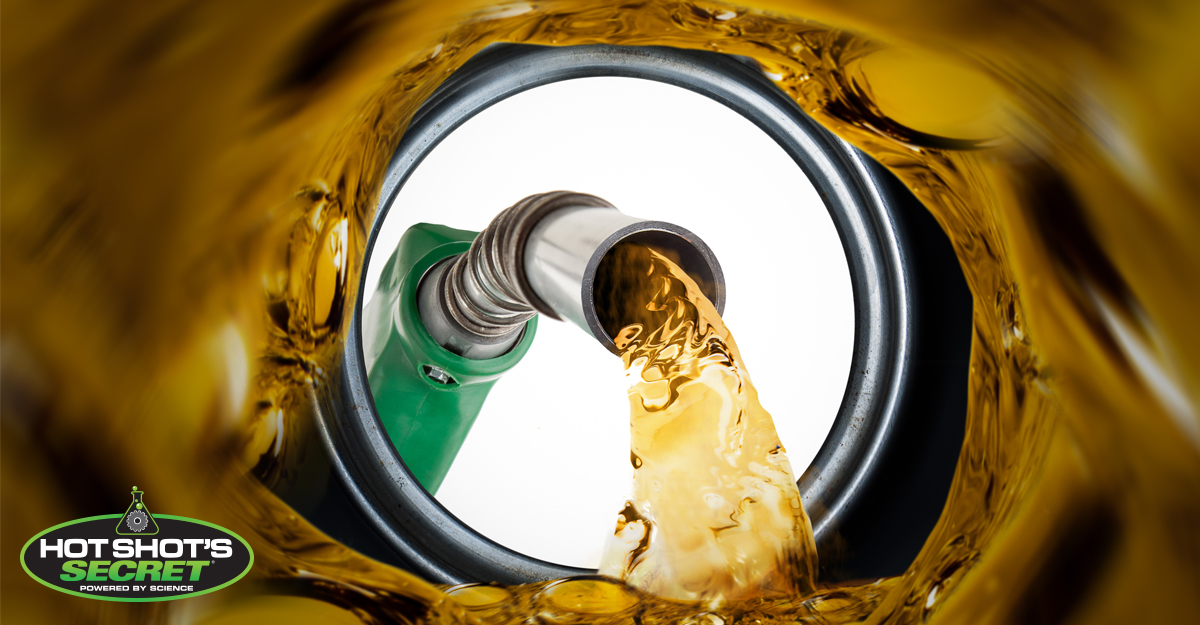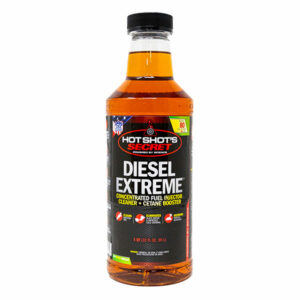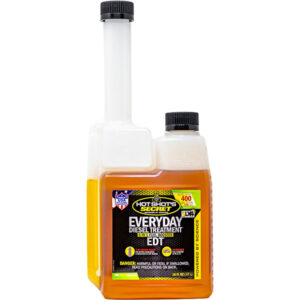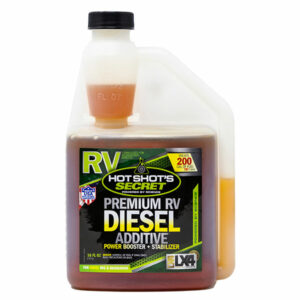
Contaminated diesel fuel is one of your engine’s worst enemies. Many internal components inside your fuel system’s injectors are highly susceptible to sticking or wear when exposed to potentially harmful contaminants. Damage to these critical components can pose a safety risk to drivers and passengers, lead to costly repairs and decrease your vehicle’s life span significantly if left unaddressed.
Maintaining the health of your fuel system is the first line of defense in avoiding these problems. Learn more about common symptoms, several causes and how to treat your fuel with additives to help solve the most prevalent contamination issues.
What Is Diesel Fuel Contamination?
Water, microorganisms, dirt, debris and other potentially harmful particles can contaminate your fuel and lead to severe system damage. Areas of concern include clogged fuel filters, a malfunctioning fuel pump, injector failure and more. Damage to fuel injectors, lines, pumps and solenoids could result in higher fuel consumption, power loss, hard starting, poor idling or smoke.
Symptoms of Bad or Contaminated Diesel Fuel
Vehicle owners often notice contamination when the fuel affects performance. Some of the most common signs are a loss of acceleration, random changes in speed and excessive sputtering. These indicators often mean the diesel isn’t burning as cleanly as it should.
Anytime an engine runs differently than usual, one of the first areas you should consider is the fuel system. Some of the most common symptoms to look for include the following:
Check Engine Light
Because some vehicle owners do not notice an apparent change in performance when their check engine light triggers, they may not prioritize maintenance. However, your vehicle’s powertrain control module (PCM) triggers the check engine light when the system operates out of the ordinary.
Owners should address even the most minor concerns right away, as some issues — like contamination in the fuel system — can lead to more significant problems later.
Clogged Fuel Filters
Clogged fuel filters are often one of the early indicators of diesel fuel contamination. The filter’s primary role is to prevent harmful substances like sludge, metal particles and other debris from entering your engine. If your filter experiences excessive clogging or needs replacing faster than usual, the root problem could be contaminated fuel.
This contamination could stem from the fuel source or internal corrosion inside your fuel tank.
Fuel Pump Failure
Fuel pump failure frequently occurs due to a clogged fuel filter. Because of a clogged filter’s restriction, the fuel pump might need to work much harder than its design allows. When the pump fails, it cannot deliver a steady flow of fuel, interrupting the engine’s mechanical function.
Some common symptoms of a failing fuel pump include:
- Power loss when accelerating
- Jerking and sputtering at high speeds
- Power loss while driving up a slope or when towing
- Engine surging without the acceleration engaged
- The inability to fire
Injector Failure
One reason for an engine’s inefficiency is a partial or complete failure of the vehicle’s fuel injection system. Many engine problems like these often go unnoticed until it’s too late, sometimes leading to complete engine overhauls or total losses. While your vehicle may still be partially operable, injection failure can significantly reduce engine efficiency and performance.
Several symptoms of injection failure include:
- Increased fuel consumption
- Minimal engine power
- Reduced RPMs
- Slow speeds and poor cycle times
- Unusual noises coming from the engine
- Discolored or excessive smoke
- Poor starting and idling
Causes of Diesel Fuel Contamination
Although solving your specific diesel fuel contamination issue can sometimes be challenging, understanding the potential causes of the problem is the first step in taking the right action. The primary causes of contamination are:
- Particulates in the fuel: Diesel fuel polluted with harmful particles is one of the most common fuel system contaminants. Various substances can affect your vehicle’s operability and performance, from ferrous metal fragments to organic materials to dirt and grime. Even the cleanest fuel can face possible contamination from corrosion when introduced to a rusty fuel tank.
- Water contamination: Water is common in many diesel fuel systems. Most diesel vehicles come equipped with water separators having sensors that alert an operator when to drain the unit. Water contamination can cause issues like rust, microbial growth and icing when not dealt with correctly.
- Fuel degradation: Like most other fuels, diesel fuel has a limited shelf life. Degraded fuel costs companies millions of dollars annually because of hydrolysis, oxidation or reaction to acidic byproducts. Fuel loses its stability when it degrades because the gums and waxes that develop contribute to damaging deposits and corrosion on engine components.
Benefits of Treating Contaminated Fuel With Additives
Utilizing high-quality fuel in your vehicle is the key to consistent performance. Purchasing an effective additive helps ensure you have adequately conditioned fuel for your engine. Because many engine manufacturers do not support the lubricity and cetane levels of some of today’s diesel fuel, they recommend a high-performance diesel additive to improve longevity and increase performance.
The benefits of a superior fuel additive bring the fuel back into spec for trouble-free and efficient operation. Some examples include:
- Stabilizers: Additives containing stabilizers prolong the stability of diesel in storage. These stabilizers help prevent fuel from breaking down or oxidizing in cases that require prolonged storage.
- Cetane Improver: Most diesel engines operate more efficiently with a fuel that has a cetane rating of 48 to 50. Fuels with higher cetane burn more efficiently and completely than those with lower cetane rating. Additives with a cetane improver increase engine performance and reduce carbon deposits by enabling diesel to burn more cleanly. By increasing power output and reducing emissions, resulting in less DPF regenerations. With the added benefit of improved throttle response.
- Water Demulsifier: Using an additive with a demulsifier is a practical and preventive action to keep the water separated for easy removal. If you opt for an emulsifier, the high pressures at the injector tips will turn the water into steam and can explode the end of the injector tip off, costing you hundreds of dollars to replace the injector. Demulsifiers are best used for diesel engines.
- Corrosion inhibitors: Corrosion inhibitors in fuel additives prevent metal-surface corrosion while prolonging engine life and vehicle operability. These inhibitors can reduce surprise repairs and maintenance requirements that result from parts failure.
Trusting Hot Shot’s Secret for All Your Fuel-Additive Needs
Hot Shot’s Secret offers an extensive selection of scientifically proven additives to combat contamination and improve fuel system efficiency. Diesel Extreme removes all diesel fuel injector contaminants, including polymeric and waxy deposits. This product contains a lubricity additive, a cetane booster and a fuel stabilizer that delivers maximum performance while cleaning the entire fuel system.
Browse our comprehensive product selection, explore our blog entries or contact our team online to learn more about how our solutions can benefit your vehicle’s operation.



